However, currently, our Party and State are promoting the work of preventing and combating corruption and negativity with the spirit of "no forbidden zones" and "no exceptions", while hostile forces distort that "Lenin had no views on preventing and combating corruption and negativity"; "The application of Marxism-Leninism by the Party and State of Vietnam is impractical and ineffective"... These false arguments need to be identified and rejected!
Profound theoretical and practical value
After the victory of the October Revolution in 1917, Soviet Russia faced many difficulties, especially bureaucracy, corruption, and waste. In that situation, as the head of the State, V. Lenin proposed many measures to restore and revive the country, in which the fight against bureaucracy, corruption, and waste was one of the immediate tasks. Accordingly, V. Lenin required the judges to be extremely strict with the crimes of bureaucracy, corruption, and waste. He emphasized: In this struggle, the Party must play a pioneering role, if we want to clean up the state apparatus, we must clean up the Party, the Party must have a fighting role.
In order for the fight against bureaucracy, corruption, and waste to be truly effective, Lenin required that the majority of the working people be attracted to participate in this struggle, because “a minority of people, that is, the Party, cannot implement socialism”[1]. Lenin emphasized: We need to promote the self-awareness, initiative, and creativity of the working people from the grassroots, from the local level up. We must supplement the grassroots, supplement the local level with cadres with good professional qualifications, high management skills, and even mobilize high-ranking cadres to work in the locality. We need to pay attention to building a contingent of state cadres, selecting them from the elite elements in society; The arrangement and organization must be streamlined, and the recruitment of staff into those agencies must also comply with strict conditions... Only by establishing a close organic relationship between the local and central agencies, relying on the assistance from the grassroots and having a team of qualified, class-conscious, and disciplined cadres can we conduct checks on the correctness of the ordinances and check the implementation of those ordinances in practice... Using all of the above measures, combining them smoothly together, will definitely overcome the evils of bureaucracy, corruption, and waste.
With the above viewpoints, policies and measures, Lenin and the country's leaders succeeded in limiting and eliminating bureaucracy, corruption and waste, making an important contribution to protecting the great achievements of the October Revolution; making the Soviet Union an economic and military power in the world in the 70s of the 20th century.
Years have passed, but Lenin's viewpoints, policies and measures to prevent and combat bureaucracy, corruption and waste remain intact. Although hostile forces have increased their distortions and sabotage, Lenin's viewpoints on preventing and combating bureaucracy, corruption and waste remain a solid ideological foundation and a guideline for the work of preventing and combating corruption and negativity in Vietnam.
Application suitable to Vietnamese practice
Applying Lenin's viewpoint on preventing and combating corruption, waste, and negativity, Resolution No. 14-NQ/TU dated May 15, 1996 on the guiding viewpoint and a number of solutions to combat corruption of the 7th Politburo clearly stated: Fighting corruption is an important component in the entire revolutionary struggle of our Party and people today. It contributes to enhancing the Party's leadership role, strengthening the effectiveness of state management, building the Party and perfecting the clean and strong state apparatus, implementing the people's democratic rights... At the 10th National Congress (2006), our Party pointed out: "The fight against corruption and waste is a key task of Party building, a direct and regular task of the entire political system and the whole society. Party committees and organizations at all levels must deeply understand the urgency, long-term, complexity and difficulty of the fight against corruption and waste; have high political determination, fight resolutely, persistently, continuously and effectively from the central to the grassroots level, in the Party, the State and the whole society..."[2].
Implementing the Resolution of the 10th Congress, the 3rd Conference of the Party Central Committee, 10th tenure issued Resolution No. 04-NQ-TU "On strengthening the Party's leadership in the work of preventing and combating corruption and waste". This is the first Resolution of the Party Central Committee to comprehensively and focusedly address the work of preventing and combating corruption and waste. The contents of the Resolution inherit and apply Lenin's viewpoints on preventing and combating corruption, waste and negativity.
In particular, based on Lenin's instructions and the practical context in Vietnam, General Secretary Nguyen Phu Trong has added new, scientific guiding viewpoints on the nature of corruption; principles, processes, and measures to prevent and combat corruption, as well as criticized negative perceptions and refuted the distorted arguments of hostile forces against this work.
General Secretary Nguyen Phu Trong said that “corruption is a “congenital defect” of power and is one of the threats to the survival of the Party and the regime; every era, every regime, every country has it, and it is impossible to completely eliminate corruption in a short time”[3]. In addition to affirming the root cause of corruption and the difficulty, complexity, and long-term nature of corruption prevention and control work, the General Secretary also added a new dialectical expression when emphasizing that “the basic, fundamental factor that has the effect of preventing corruption from the root is to “lock” power in an institutional “cage””[4]. To do this, the General Secretary said that “it is necessary to gradually perfect a strict prevention mechanism to ensure that corruption is “impossible”, “not daring”, “not wanting”, and “not necessary” [5].
The unique creativity and comprehensiveness of General Secretary Nguyen Phu Trong's anti-corruption viewpoint is that he has fully and clearly identified the consequences of negative perceptions and incorrect nature of the current anti-corruption campaign. These viewpoints not only refute the distorted and incorrect arguments of hostile forces, but also contribute to stabilizing the ideology of cadres and party members and regulating social psychology.
The General Secretary emphasized that it is necessary to strongly and comprehensively realize that: “Strengthening the fight against corruption and building and rectifying the Party only “hesitates” those with impure motives, who have “got involved” and those who do not fully grasp the Party’s guidelines and policies, lack knowledge, experience and courage[6] and that it is thanks to doing a good job of building and rectifying the Party, strengthening the fight against corruption that has made an important contribution to promoting socio-economic development, maintaining political stability, strengthening national defense, security and foreign affairs”[7].
***
Lenin's viewpoint on combating bureaucracy, corruption and waste is a comprehensive and profound system of issues, which is of great significance to the work of preventing and combating corruption in many countries and peoples. For the Communist Party of Vietnam, since its inception, especially in the period of renovation, industrialization, modernization and international integration, through congresses and in many resolutions and directives on preventing and combating corruption, on the basis of applying Marxism-Leninism and Ho Chi Minh's thought, our Party has effectively led the fight against this evil, thereby contributing to building and rectifying the Party to be increasingly clean and strong, building and firmly protecting the socialist Fatherland of Vietnam. The results achieved in the work of preventing and combating corruption and negativity in Vietnam are the inheritance and creative application of Marxism-Leninism and Ho Chi Minh's thought on preventing and combating corruption. Therefore, somewhere the distorted arguments that "Lenin had no views on preventing and combating corruption and negativity"; "The application of Marxism-Leninism by the Party and State of Vietnam is unrealistic and ineffective"... are just the never-ending sabotage in the plot and tricks of "peaceful evolution", promoting "self-evolution" and "self-transformation" within the hostile forces. Fighting against those arguments not only protects Marxism-Leninism but also directly contributes to protecting the ideological foundation of the Party.
Lieutenant Colonel, Doctor Nguyen Trung Thong
--------
[1] VILenin, Complete Works, Volume 36, Progress Publishing House, Moscow. 1979, p.68.
[2] Communist Party of Vietnam, Documents of the 10th National Congress of Delegates, National Political Publishing House, Hanoi, 2006, pp.286-287.
[3] Nguyen Phu Trong, Some theoretical and practical issues on socialism and the path to socialism in Vietnam, National Political Publishing House - Truth, Hanoi, 2022, p.405.
[4] Nguyen Phu Trong, Some theoretical and practical issues on socialism and the path to socialism in Vietnam, op. cit., p.410.
[5] Nguyen Phu Trong, Some theoretical and practical issues on socialism and the path to socialism in Vietnam, op. cit., p.396.
[6] Nguyen Phu Trong, Some theoretical and practical issues on socialism and the path to socialism in Vietnam, op. cit., p.401.
[7] Nguyen Phu Trong, Some theoretical and practical issues on socialism and the path to socialism in Vietnam, op. cit., p.401.
Source


![[Photo] "Lovely" moments on the 30/4 holiday](https://vphoto.vietnam.vn/thumb/1200x675/vietnam/resource/IMAGE/2025/5/1/26d5d698f36b498287397db9e2f9d16c)


![[Photo] Binh Thuan organizes many special festivals on the occasion of April 30 and May 1](https://vphoto.vietnam.vn/thumb/1200x675/vietnam/resource/IMAGE/2025/5/1/5180af1d979642468ef6a3a9755d8d51)
![[Photo] Ha Giang: Many key projects under construction during the holiday season](https://vphoto.vietnam.vn/thumb/1200x675/vietnam/resource/IMAGE/2025/5/1/8b8d87a9bd9b4d279bf5c1f71c030dec)


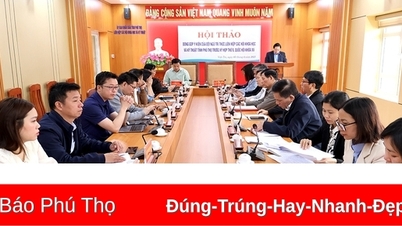
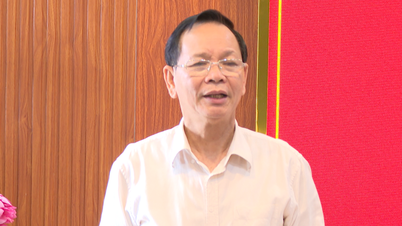



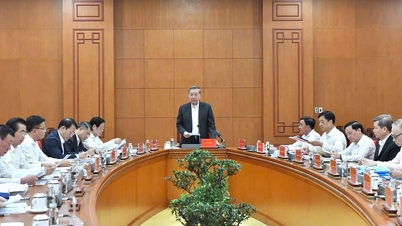

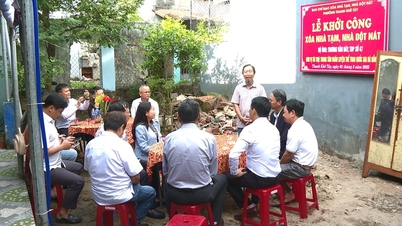

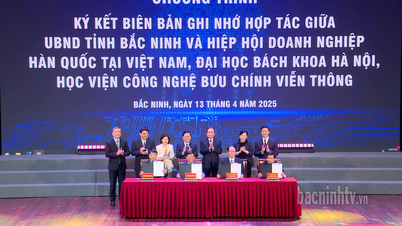

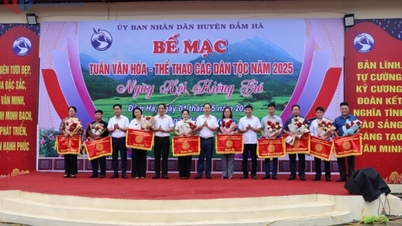





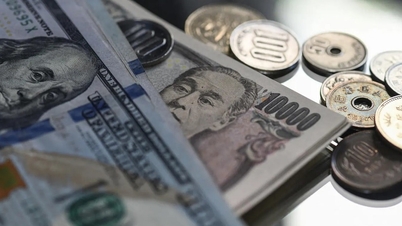




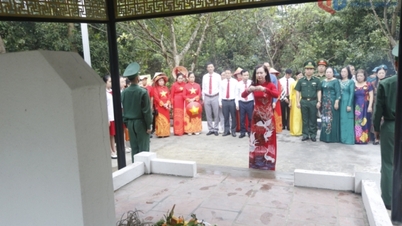



































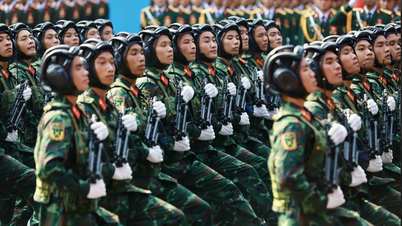


















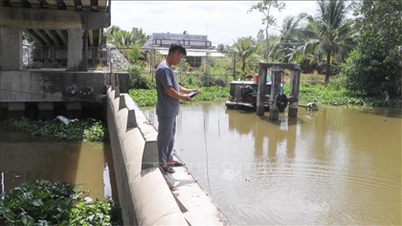












Comment (0)